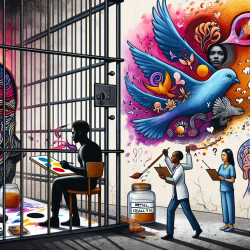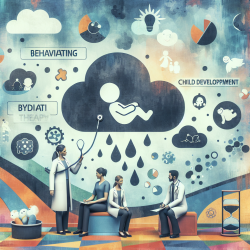Introduction
The COVID-19 pandemic has brought unprecedented challenges across various sectors, including the realm of intimate partner violence (IPV) and sexual violence (SV) support services. A recent qualitative study titled "Service provider perspectives on how COVID-19 and pandemic restrictions have affected intimate partner and sexual violence survivors in Canada" offers valuable insights into these challenges. This blog aims to help practitioners enhance their skills by implementing the outcomes of this research and encouraging further exploration into this critical area.
Understanding the Impact
The study involved interviews with 17 management and frontline staff from organizations supporting IPV and SV survivors across Canada. Four key themes emerged:
- No Escape: The pandemic's restrictions, such as stay-at-home orders, made it increasingly difficult for survivors to flee violence.
- Isolation: Survivors faced heightened isolation due to social distancing measures and increased controlling behaviors by partners.
- Tough Decisions: The pandemic introduced complex decisions around childcare, custody, and health risks for survivors.
- Heightened Vulnerability: Economic and social factors exacerbated survivors' vulnerabilities, affecting their access to services.
Implications for Practitioners
Practitioners can draw several lessons from these findings to improve their support for IPV and SV survivors:
- Adopt a Holistic Approach: Addressing socioeconomic issues such as poverty and marginalization is crucial in tackling IPV and SV effectively.
- Enhance Accessibility: Consider innovative solutions to make services more accessible, such as partnerships with essential services that remain open during pandemics.
- Foster Social Connections: Despite physical distancing, finding ways to maintain social connections for survivors is essential for their mental well-being.
Encouraging Further Research
While the study provides significant insights, further research is needed to explore survivors' direct experiences during the pandemic. Understanding their coping mechanisms and perspectives on support strategies can inform more effective interventions.
Conclusion
Service providers play a critical role in supporting IPV and SV survivors, especially during challenging times like the COVID-19 pandemic. By implementing data-driven insights and adopting a holistic approach, practitioners can enhance their skills and create better outcomes for survivors. For those interested in delving deeper into the research findings, I encourage you to read the original research paper, Service provider perspectives on how COVID-19 and pandemic restrictions have affected intimate partner and sexual violence survivors in Canada: a qualitative study.










